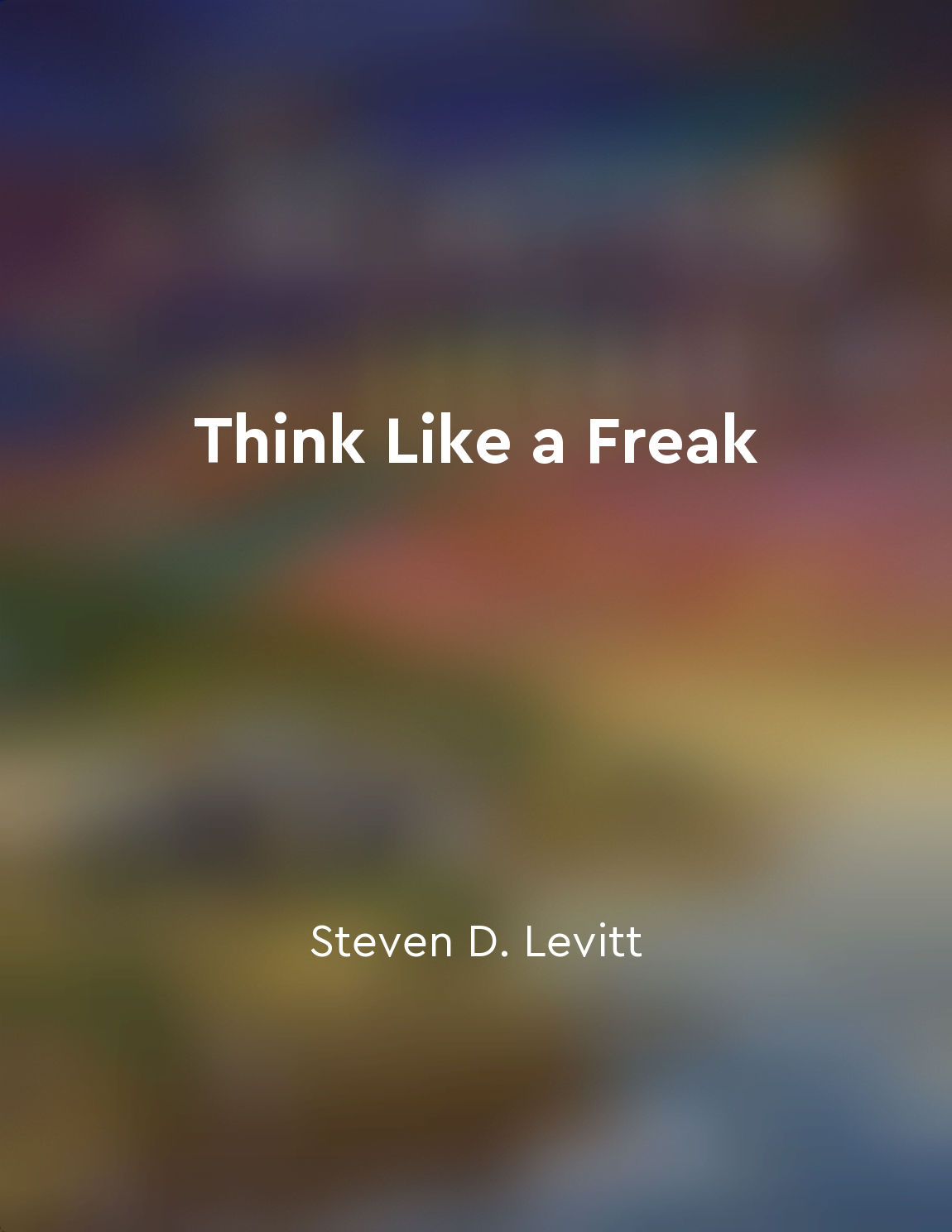Rational actors respond to incentives from "summary" of EBOOK: Macroeconomics by Rudiger Dornbusch,Stanley Fischer,Richard Startz
When individuals make decisions, they weigh the costs and benefits of different alternatives. Rational actors are those who make decisions by comparing the costs and benefits of different options. This means that individuals consider the incentives they face when making choices. Incentives can be financial or non-financial factors that motivate people to act in a certain way. Rational actors respond to these incentives by choosing the option that maximizes their utility or satisfaction. For example, when the price of a good decreases, consumers are more likely to buy more of that good because the benefit of purchasing the good outweighs the cost. This is known as the law of demand in economics. Rational consumers respond to the lower price by increasing their consumption of the good. Similarly, when the price of a good increases, consumers are less likely to buy that good because the cost outweighs the benefit. In this case, rational consumers respond to the higher price by reducing their consumption of the good. In the labor market, workers respond to incentives by choosing how many hours to work based on the wage rate. When the wage rate is high, workers are more likely to work longer hours because the benefit of earning a higher income outweighs the cost of working more. Conversely, when the wage rate is low, workers are less likely to work longer hours because the cost of working more outweighs the benefit. Rational workers respond to changes in the wage rate by adjusting their hours worked to maximize their income.- The concept of rational actors responding to incentives is at the core of economic analysis. It helps us understand how individuals make decisions based on the trade-offs they face. By considering the costs and benefits of different options, rational actors are able to make choices that maximize their utility or satisfaction.
Similar Posts
Subconscious cues: influence behavior without awareness
Subconscious cues are powerful drivers of human behavior. They have the ability to influence our actions without us even being ...

Sorting algorithms can help us organize our tasks and prioritize them efficiently
When faced with a chaotic array of tasks, it can be overwhelming to figure out where to start. Just like sorting algorithms org...

Tax policy influences economic behavior
Tax policy can have a significant impact on the behavior of individuals and businesses within an economy. By adjusting tax rate...

Antitrust laws should prevent collusion
Antitrust laws are designed to promote competition by preventing anticompetitive behavior such as collusion among competitors. ...

International trade benefits all parties
International trade is a fundamental concept in economics that has been proven to benefit all parties involved. When countries ...
Economic systems impact income distribution
The way in which an economy is structured has a significant impact on how income is distributed among individuals in society. D...

Look for hidden solutions
When faced with a problem, most people tend to focus on the obvious solutions. They look for answers that are right in front of...
Economic policies influence market outcomes
Economic policies have a significant impact on the outcomes we observe in markets. These policies are put in place by governmen...
We make choices that often defy rational reasoning
Human beings have a remarkable ability to make choices that are often puzzling to outsiders, and sometimes even to themselves. ...

Rationality can be influenced by emotions and biases
One might assume that rationality is a purely logical and objective process, unaffected by emotions or biases. However, this as...

